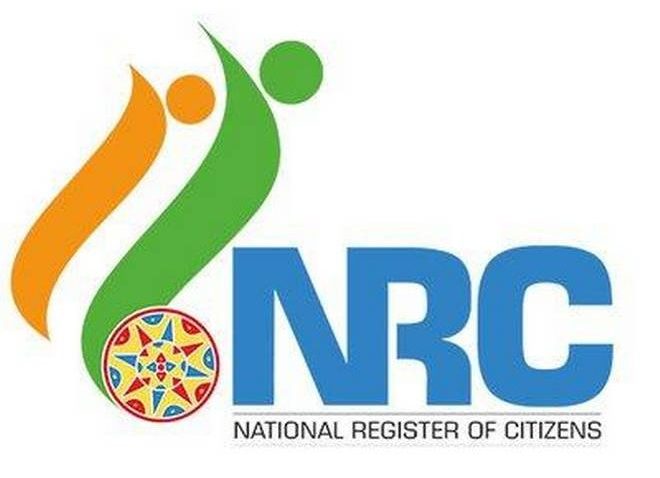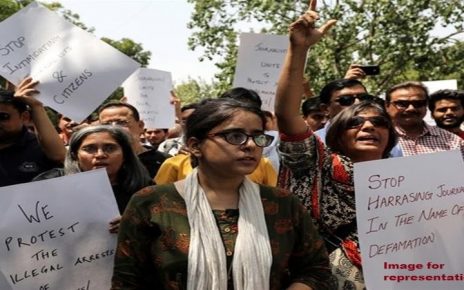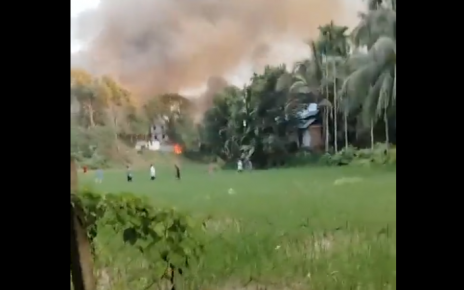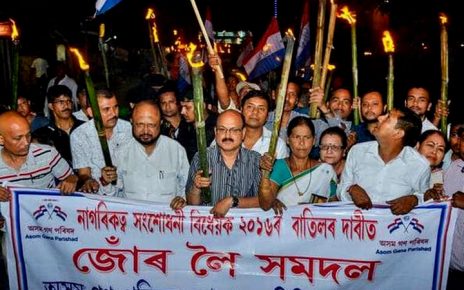New Delhi: The “Rights and Risks Analysis Group” (RRAG) in a press statement today stated that by excluding 1.9 million persons from the National Register of Citizens (NRC), India made the largest number of people ‘stateless’ in human history, followed by the declaration of about 9,75,000 descendents of Indian origin Tamils or the Upcountry Tamils as “non-nationals” in Ceylon (Sri Lanka) after independence in 1948; decree making an estimated 800,000 Rohingyas stateless under the 1982 Citizenship Law of Burma; declaring about 4,00,000 Bihari Muslims in Bangladesh as non-citizens after the Liberation War in 1971; expelling about 3,90,000 Indian origin people by Myanmar in 1964; expulsion of 108,000 ethnic Nepalis/ Lhotshampas after declaring them as non-citizens under the 1985 Citizenship Act of Bhutan in 1991; declaration of about 100,000 Chinese origin Indonesians as non-citizens in 1958 after failure of the 1955 Sino-Indonesia Dual Nationality Treaty; and expulsion of about 60,000 Indian origin people by General Idi Amin of Uganda in 1972.
“If the Foreigners Act of 1946 is to be followed in letter and spirit with respect to those excluded from the NRC, it shall mean prosecuting all these peoples before the Foreigners Tribunals (FTs) irrespective of whether they file appeals or not, immediate arrest and imprisonment of those declared as foreigners by the FTs unless the orders of the FTs are stayed or overturned by the Guwahati High Court or the Supreme Court, and finally deporting to the country from where these convicted foreigners have come from. If hundreds of thousands of people are to be sent to detention centres for deportation, it shall constitute the crime of ‘forcible deportation’ as defined under the Rome Statute of the International Criminal Court and the Geneva Conventions on War Crimes.” – stated Mr Suhas Chakma, Director of the RRAG.
“If India were to send hundreds of thousands of people into detention centres for ‘forcible deportation’ after separating the families and without any hope of any other country accepting India’s forcible deportation, detention centres in Assam shall be reminiscences of the concentration camps under the Nazi Germany. No other country in recorded human history except Nazi Germany has either deported or kept hundreds of thousands of people in detention centres. A country claiming to be democratic and governed by the rule of law cannot repeat such despicable crimes against humanity.” – also stated Mr Chakma.
The narrative of Assam being swamped by influx of foreigners is based on the migration from 1901 to 1971 when Assam’s average decadal population growth rate of 23.95% was almost double of All India’s 12.90%. But those who came to India before 24th March 1971 have already been accepted as citizens of India as per the Assam Accord of 1985. Further, the “Decadal Variation in Population Since 1901 to 2011” of the Census of India provides that from 1971 to 2011, Assam’s average decadal population growth rate of 20.90% was lower than All India’s of 21.94%, and therefore, no noticeable influx of foreigners took place during this period.
“The National Register of Citizens is not about identification of foreigners but a process to punish those who do not have documents of their own or of their forefathers to prove as residents of Assam prior to 24th March 1971. As about 66% of the people of Assam were illiterate as per 1971 census, it means 66% of the people in Assam in 1971 did not possess educational certificate which are also used as birth certificates. The poor, illiterate, landless people of 1971 or their descendants have faced the most serious difficulties to prove their legacy.” – further stated Mr Chakma.
Questioning the NRC process, Mr Chakma stated, “with the exception of the Tea Tribes, none of the other communities, linguistic or religious groups in Assam was identified or listed as original inhabitants of Assam. Therefore, all other original inhabitants of Assam have been treated as doubtful citizens and this is the travesty of the NRC process”.
The Rights and Risks Analysis Group (RAAG) urged India to consider the issue afresh, stop the criminal prosecution of the excluded under the Foreigners’ Act and resolve the crisis based on the past practices of India accommodating expulsion of Indian origin people by Myanmar or Uganda or foreign countries like Sri Lanka, Fiji etc granting citizenship to the Indian origin people.



